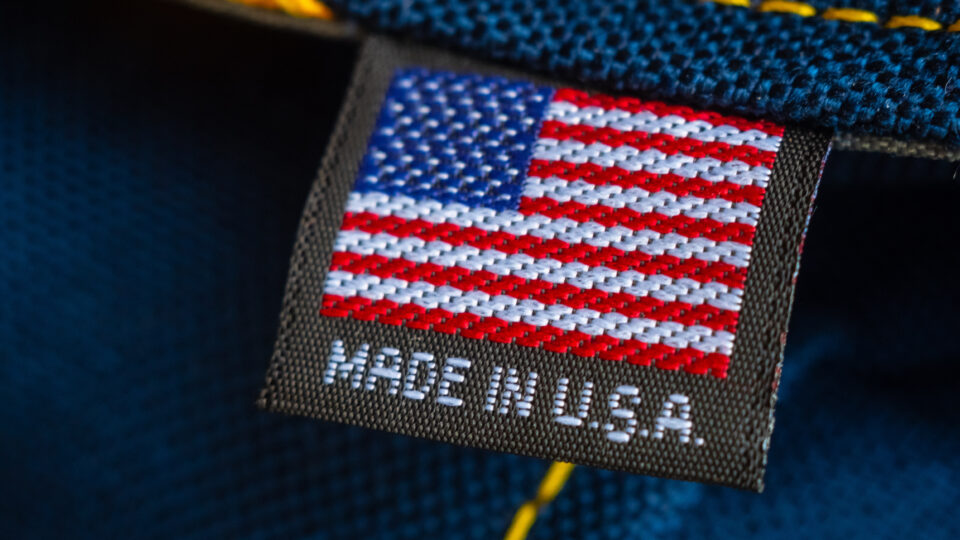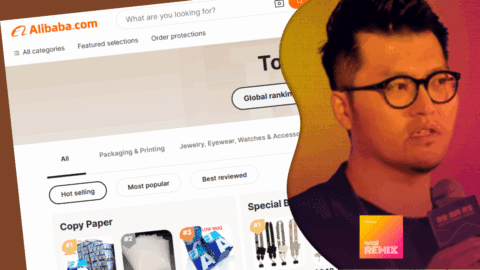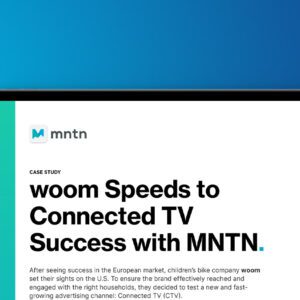Last month, the Federal Trade Commission began to crack down on false “Made in the USA” claims, sending warning letters to a number of companies and promising that “companies that falsely claim their products are ‘Made in the USA’ can expect to hear from the FTC.”
But new research out of Michigan State University found that many consumers don’t truly understand what Made in the USA labels indicate — even when they are used accurately.
The study, conducted by researchers at MSU’s College of Communication Arts and Sciences, investigated consumer attitudes, perceptions and behaviors toward Made in USA claims, and is only the second peer-reviewed study to explore the subject. The authors focused specifically on voluntary country of origin claims.
Voluntary country of origin claims are statements that companies choose to put on their products or marketing materials to indicate where the product or its components were made, assembled or sourced. Unlike mandatory labeling (such as for some food products or imported goods), these statements are not required by law and are used to influence consumer perception and buying decisions. Voluntary country of origin claims are still subject to FTC regulations and guidelines, despite not being legally required, and can be a gray area for regulation because companies are allowed to advertise claims like “Made in the USA” if “all or virtually all components are made and sourced in the U.S.”
“That ‘virtually all’ language leaves a lot of room for interpretation,” said Patricia Huddleston, one of the study’s authors and a Professor in MSU’s Advertising and PR Department. “It opens the door for companies to make patriotic-sounding claims that may not align with what consumers actually assume those labels should mean.”
What Consumers Think ‘Made in USA’ Labels Indicate
The study found that, not unreasonably, many consumers assume that products labeled Made in USA are almost entirely manufactured domestically, but the story is, of course, much more complex than that.
As an example, the authors pointed to a car — while the engine, transmission and body of the car might be built and assembled in the U.S., the electronics might be manufactured in Japan, the steering system in Mexico and the raw materials used might be from Canada. Despite this global input, the vehicle can still qualify for a “Made in USA” label under current FTC guidelines if the final assembly is domestic and a substantial portion of the manufacturing costs are incurred in the U.S.
However, the researchers found that consumers believe that a Made in USA label shouldmean that a product is assembled in the U.S. of entirely U.S.-made parts and U.S.-sourced materials. There was some nuance to that expectation, because while a fully U.S.-sourced product was what consumers thought the label should indicate, respondents also shared that what they thought it actually means: a product assembled in the U.S. of entirely U.S.-made parts, even if a few of those parts use raw materials of foreign origin.
That’s still a far cry from how some merchants are currently applying the label, leading to the FTC’s recent crackdown.
“The one notable conclusion to draw here is that confusion exists,” said study author and MSU Professor Saleem Alhabash in a statement. “Consumers are not sure what the Made in USA label means, nor is their expectation aligning with reality in any consistent fashion.”
Despite Growing Demand, ‘Made in USA’ Not Always Viewed Positively
Interest in Made in the USA products has skyrocketed this year amid the trade tensions and economic concerns spurred by President Trump’s tariff policies. Google searches for “Made in USA” have roughly doubled since the start of 2025, and 43% of Americans say their interest in this segment of products has increased over the past year, according to Traceone. Searches specifically for American-made products on Amazon also have increased dramatically since the start of the year.
This increased interest, however, doesn’t translate to an overwhelmingly positive sentiment about what the label symbolizes. Researchers found that “Made in USA” elicited both positive and negative emotions — positive emotions included pride and patriotism, whereas negative emotions included racism and false patriotism. In fact, 31% of consumers surveyed said they associated “Made in USA” with quality and 21% said they associate it with positive emotion. Supporting the economy was another underlying meaning of the label.
Additionally, approximately one-third of participants expected more from “Made in USA” claims than they felt were delivered, but more than half of them thought the reality exceeded their expectations. For the study, MSU researchers analyzed survey data from 131 adult respondents, most of whom identified as male, non-Latino Caucasians.















